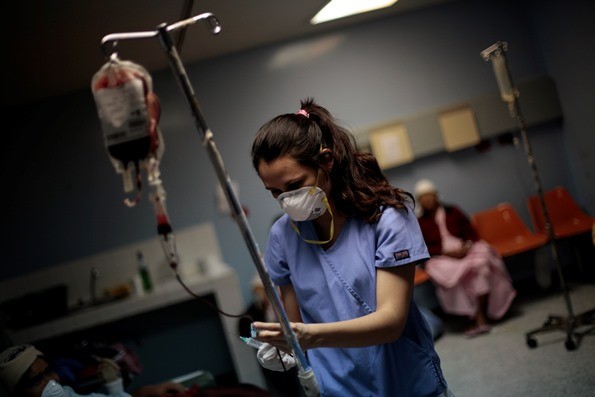Every year, about 10 people suffer from HIV due to the limitations in medical technology such as screening, revealed Chinese specialists.
During blood transfusion, the risk for acquiring blood-borne diseases like HIV/AIDS and hepatitis C is high, regardless of the continuing apprising to the more sensitive RNA-based HIV screening at China's blood banks, said Wu Zunyou, head of the National Center for AIDS/STD Control and Prevention, to China Daily.
To ensure safety, the volunteers for blood donations in China are obliged to go through the aforementioned tests.
According to Wu, referring to a nationwide HIV surveillance network, there were 2,337 HIV/AIDS cases detected in the first 10 months of the previous year due to the screening held during blood donations of the volunteers.
"However, due to limited screening technology, we report about 10 HIV cases each year of people who are infected via transfusion of infected blood," he acknowledged.
Moreover, a certain number of gay men were known to using blood donations to undergo the tests for HIV, Wu said.
"They don't want to go to the government-designated HIV screening clinics for fear of possible discrimination and privacy leakage," he explained.
Today, many of the blood centers make use of the antibody test for HIV screening, and the infected people delivers a positive result approximately 22 days after the initial infection.
Beginning this year, the test will be improved to an RNA-based exam, which could ease the time it will take from 22 days down to 11 days.
The recent advancement can help reduce HIV infections through blood transfusion up to 50 percent.
"Current technology doesn't allow for a condition of zero-risk and the rest of the world is facing the challenge as well," he said.
Lai Dongsheng, deputy director of the Fujian provincial blood center, suggested that to reduce the possibility of being infected, it is essential to ensure regular donors with low risk of HIV and to strictly control clinical use of blood transfusion.
Vulnerable men should go for tests at accredited testing centers, Wu added.
Due to the high incidence of the disease among gay men, they were banned in China. The national average of HIV prevalence in the group occurs at 0.07 percent and stands at around 5 percent in a nationwide scale.
Wu added that China should ensure a total ban, unlike the U.S. that allows gay men to donate if they had not had homosexual intercourse for at least one year.
Huang Linping, a professor of general surgery at the China-Japan Friendship Hospital, announced that they should be vigilant regarding blood transfusions.
"Patients must be informed of potential risks like infection by some blood-borne viruses before necessary blood transfusions," he said.
However, he emphasized that blood transfusions are needed to rescue lives in various scenarios.
"There is no need to panic just because of highly individual cases. The overall HIV prevalence remains quite low in China," he concluded.
Globally, the possibility of acquiring HIV through blood transfusion is between 1 out of 38,000 and 1 out of 300,000 subject to the amount of blood consumed.


